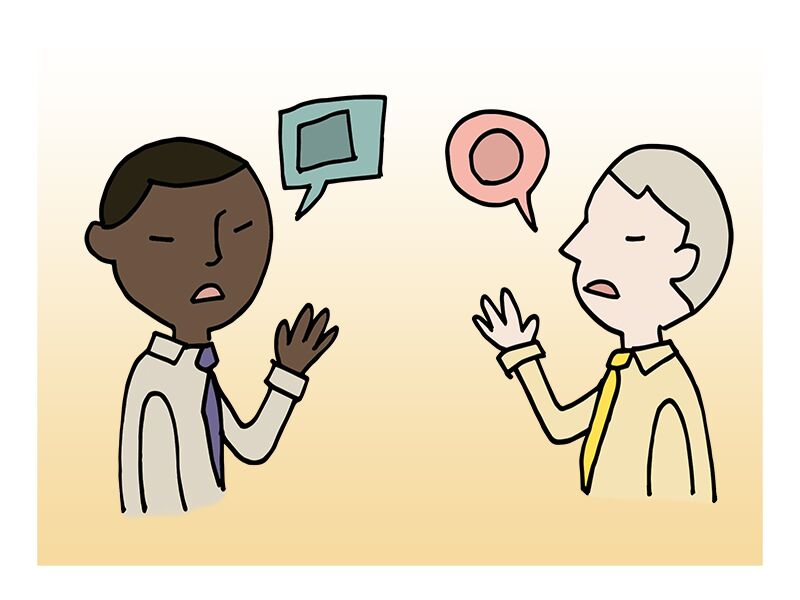The difficulties of facing arguments with those who hold different opinions
There is no winning or losing when it comes to a discussion. At least, this is what I try to tell myself after every heated argument with a friend or relative. Unfortunately, I haven’t been able to convince myself of this with much success.
It is easy to get carried away when a subject you are passionate about is brought up by somebody whose opinion conflicts with your own. While some may react rapidly with directness, others may feel the need to remain silent, fearing the aftermath of a disagreement.
Comedian Tina Fey recently wrote a segment for Saturday Night Live following the events in Charlottesville, Va., denouncing white privilege and white supremacy through satire. In the skit, she jokingly said that people should just eat cake in response to white supremacists. A lot of controversy emerged in response to the segment as many criticized Fey for encouraging people to ignore racism rather than take action against it.
Disregarding racism gives it the space to grow and the time to strengthen, eventually leading to atrocities such as the ones seen in Charlottesville on Aug. 12 which led to the death of 32-year-old Heather Heyer.
Closer to home, according to a Statistics Canada report, the number of Islamophobic hate crimes reported to police in Canada increased by 60 per cent from 2014 to 2015.
Facing racism and bigotry can be terrifying, but reminding yourself of the experiences their victims go through should be enough to motivate you to try changing someone’s mind. Regrettably, some may see it as a hassle or a useless fight to confront a narrow-minded person, and prefer to silently avoid conflict.
While I strongly encourage people to stand up for their beliefs, I have not always done so in my own life. France, my home country, only legalized same-sex marriage in 2013. In 2010, when I began to discover my sexuality, homosexuality was still rather taboo in France, especially in the countryside where I am from. I hid my very own traits from most, making sure not to show signs that would reveal who I am. Yet, it was hard to ignore the comments, the degrading names, the unfounded criticism or the blatant disgust some people around me expressed toward openly queer people. Unfortunately, directly calling them out was challenging. Avoiding confrontation can sometimes be the safest solution, and it is sometimes the only thing that can be done.
This tendency to avoid conflict has unfortunately become even easier in our social media age where you can effortlessly choose the content you want to see or ignore. Yet, interacting with people who hold differing opinions is a good way to understand why they don’t agree with you. Furthermore, focusing on one issue and ignoring other issues around social matters such as gender identification, religion, women’s rights, healthcare or historical truth is not a way to be actively open-minded.
Over the years, I’ve become more and more outspoken about some of my opinions. An example would be a three-day long argument my roommate and I had about whether taking in refugees in Europe and North America was a good thing. The opinions he had on the matter were the gasoline fueling my fire. Occasionally during the argument, we would lose track of the points we were making or try to use irrelevant information as evidence—we just wanted to be right. After three days, we both agreed on one single thing—you need a strong will to learn and have a productive, mind-changing discussion.
Simply believing that opinions will evolve and shift over time is the worst way to seek change. Protests that turn violent and arguments that focus on winning rather than proving a fact-based point aren’t good solutions either. It is important to speak with people of different backgrounds and ask them about their own experiences. And while a person’s experience may not be enough to change your view, complementing it with research from diverse sources will allow a productive exchange of ideas.
Graphic by Zeze Le Lin





For an article about handling different opinions, you spend most of it giving yours on various things. This reads like you wanted to write about various social issues which would all need their different articles, but you decided to vent it all out in one. I would have understood if you had given your opinion and then wrote about the other side of the coin, but you only give yours. Your conclusion is correct, but the way you deliver sounds like you don’t really believe in it yourself.